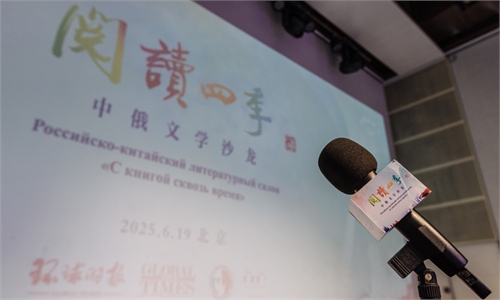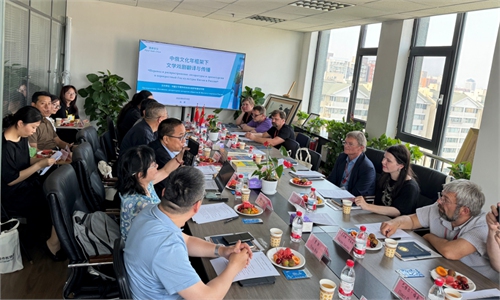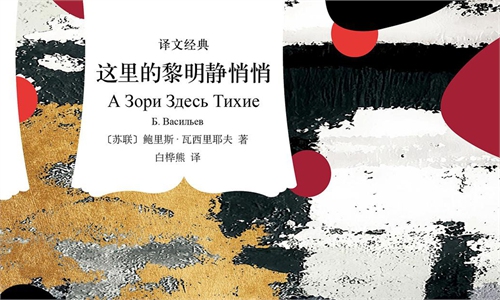ARTS / CULTURE & LEISURE
Literature occupies foremost position in cultural exchanges
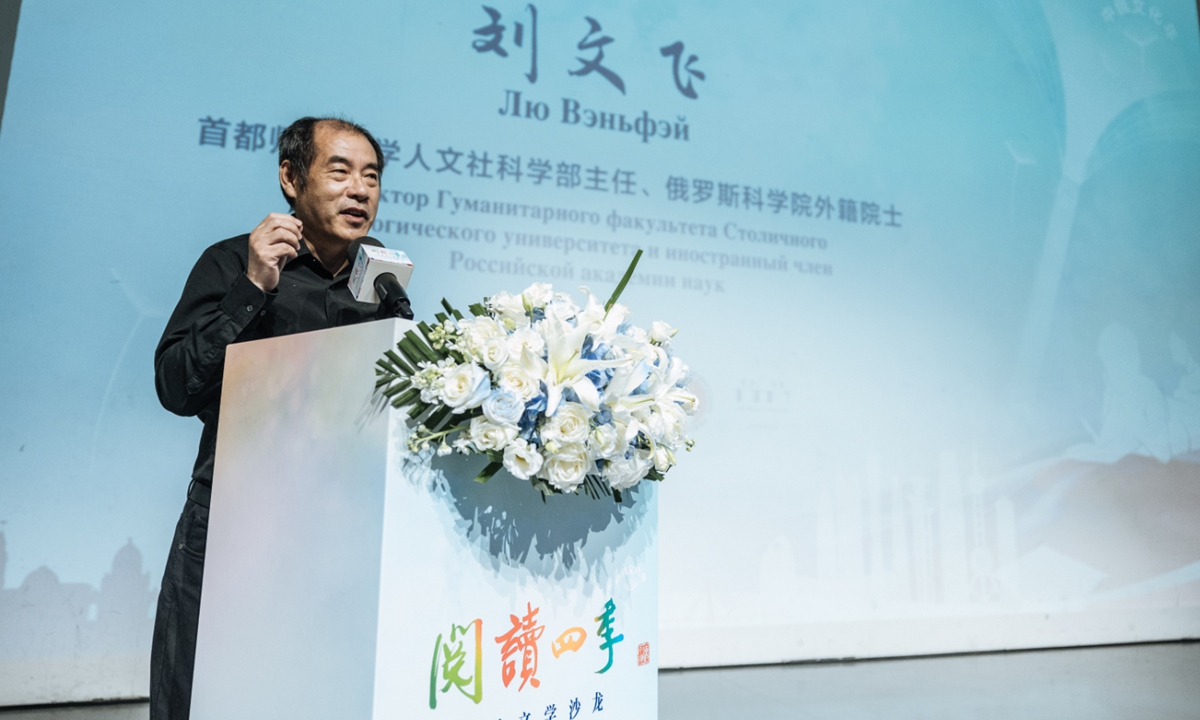
Liu Wenfei Photo: Li Hao/Global Times
Editor's Note:Against the backdrop of the "China-Russia Years of Culture," the "Reading through the Seasons" China-Russia Literature Salon was held by the Global Times and the Russian Cultural Center in Beijing on Thursday with the participation of renowned experts in Chinese and Russian literature such as Liu Wenfei, a veteran Russian language professor at Capital Normal University and a foreign member of the Russian Academy of Sciences. Liu's literary career has been highlighted by numerous translated works, including the translation into Chinese of many Russian novels and poems. This article is based on Liu's speech at the event.
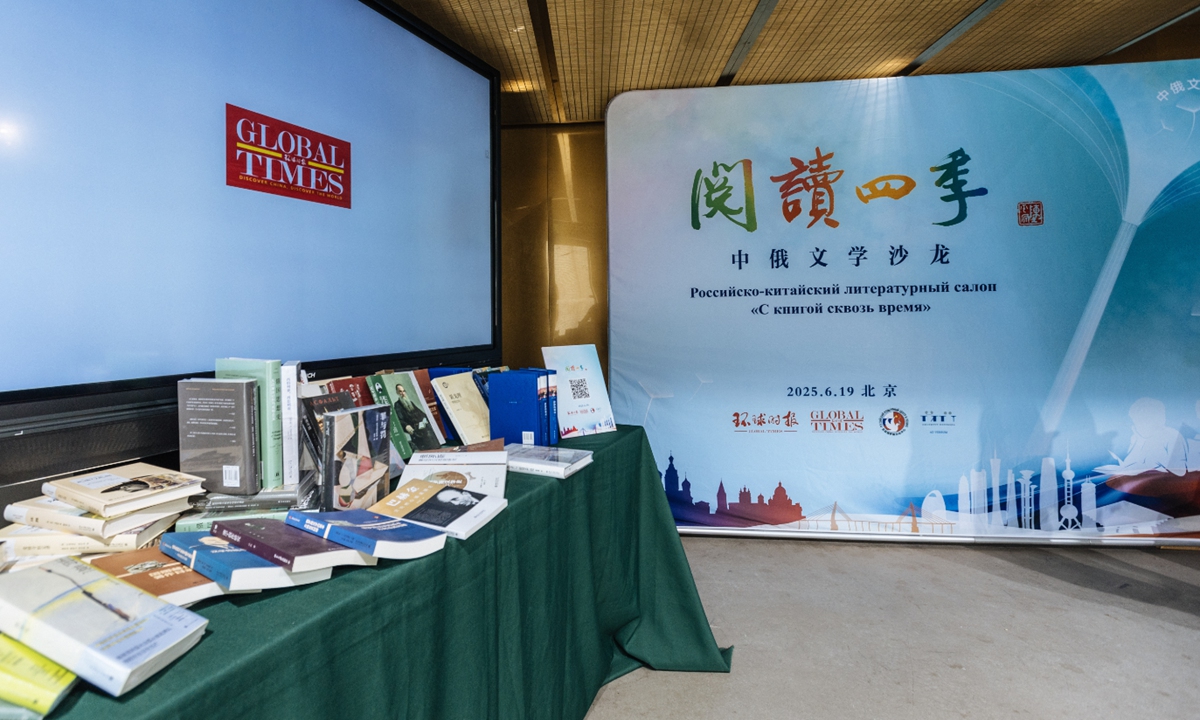
A scene at the "Reading through the Seasons" China-Russia Literature Salon Photo: Li Hao/Global Times
Over a decade ago, I delivered a speech at Shanghai International Studies University titled "The Possibility of China-Russia Literary Diplomacy." Today, the concept of "China-Russia literary diplomacy" is not only established but also increasingly embraced by people in both nations. For us, revisiting this topic now moves beyond mere "possibility" into tangible reality.Within the broader state relations between China and Russia, I have always maintained that people-to-people and cultural exchanges constitute the most vital bridge. And within this realm of cultural exchanges, literature consistently occupies the foremost position.
This phenomenon stems both from the long-term influence of unique historical and cultural contexts and reflects the shifting currents of international geopolitics over the past century.
Both China and Russia stand as preeminent literary powers globally.
Throughout China's dynastic history, literature held profound significance.
The golden ages in Chinese history were characterized not only by prosperity, social stability, and material abundance but also by glorious literary achievements, including poetry from the Tang Dynasty (618-907), lyrics from the Song Dynasty (960-1279), drama from the Yuan and Ming dynasties (1279-1644), and historical romances and novels from the Qing Dynasty (1644-1911). The current era possesses its contemporary literature, an artistic reflection of our times and an integral part of world literature today.
I have often remarked that Russian literature might be Russia's finest offering to the world.
By the 1880s, following Pushkin and Lermontov, the emergence of world literary giants like Dostoevsky, Tolstoy, and Chekhov forced the West and the wider world to regard Russia with new eyes.
Literature played a pivotal role in shaping Russia's national image. For two centuries, it has remained Russia's most distinguished calling card.
Originating roughly from the centenary of Pushkin's death in 1837, Russia witnessed the rise of the "cult of Pushkin" and the phenomenon of "literary centrism."
Literature reigned supreme not only in the arts but also exerted immense influence across all facets of national life. As my friend, renowned Russian poet Yevgeny Yevtushenko aptly captured in his famous line: "A poet in Russia is more than a poet."
Literary ties between China and Russia boast a long history.
As early as 1759, The Orphan of Zhao, a Chinese play from the Yuan Dynasty, was translated into Russian. In 1772, the first standalone Chinese literary work, Chinese Thoughts, was published in St. Petersburg. In 1903, Pushkin's The Captain's Daughter was translated into Chinese, becoming the first standalone Russian literary work published in China.
Following these milestones, both nations embarked on large-scale translation projects for each other's literature.
In Russia, all Four Great Classical Chinese Novels have been translated. Chinese classics by Qu Yuan, Li Bai, Du Fu, Pu Songling, and Lu Xun have entered the reading repertoire of general Russian literary audiences.
China's translation and introduction of Russian literature is unparalleled globally. We have translated thousands of Russian and Soviet literary works, with total print runs reaching hundreds of millions. Moreover, a distinct "Russian complex" has taken root in the hearts of more than one generation of Chinese readers.
In a piece I wrote for the People's Daily discussing the Chinese people's "Russian-Soviet love knot," I argued that its core is essentially a "Russian literature love knot." This signifies the deep respect and affection the Chinese people hold for Russian literature.
Over the past decade or so, Russian sinology has demonstrated tremendous commitment and care in translating Chinese literature, particularly contemporary works, achieving remarkable and widely recognized results.
Remarkably, the best-selling book across Russia in 2024 was the Chinese web novel Heaven Official's Blessing. While this is popular online fiction, not serious literature, its position as Russia's top read represents a significant inflection point.
During my frequent visits to Russia, I've noticed in bookstores across Moscow, St. Petersburg, and other major cities that works by Chinese writers, including Mo Yan, Tie Ning, and Yu Hua, are prominently displayed. Some stores even have dedicated sections for "Chinese Literature" or "Contemporary Chinese Literature."
My personal involvement also reflects the growing closeness of China-Russia literary diplomacy.
Since 2014, I proposed that the literary journals October from both Beijing and Moscow collaborate, leading to the establishment of the "China-Russia October Literary Forum."
During the 2016 China-Russia Media Exchange Year, I participated in selecting the top 10 most influential Russian literary works in China and top 10 most influential Chinese literary works in Russia.
These initiatives serve as compelling evidence of the vibrant, ongoing interaction between Chinese and Russian literature, and today's event further attests to this dynamic exchange.
I sincerely hope that literary diplomacy between our two nations will continue to deepen and yield ever more fruitful results.
The author is director of the Division of Humanities and Social Sciences at Capital Normal University in Beijing and a foreign member of the Russian Academy of Sciences
